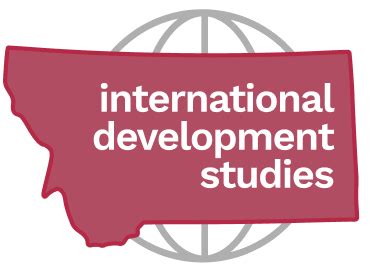Are you interested in making a positive impact on the world? Do you want to be part of the solution to global challenges such as poverty, inequality, and climate change? If so, a degree in International Development Studies could be the perfect fit for you. In this blog post, we will delve into the various aspects of International Development Studies programs offered in American universities. From understanding the importance of studying international development to exploring the curriculum and practical experiences such as immersive study abroad opportunities and fieldwork, we will cover it all. We will also discuss the impact evaluation and evidence-based practices in addressing global challenges, as well as the strategies for sustainable development and promoting gender equality. Additionally, we will shed light on the networking and career opportunities available to graduates, as well as the success stories of those who have made a real difference in the field of international development. If you are passionate about creating positive change on a global scale, then keep reading to learn more about the potential of International Development Studies programs.
Table of Contents
Understanding Global Challenges: Why Study International Development?
Studying international development is essential for understanding the complex issues facing the global community today. With globalization and modern technology, the world is more interconnected than ever, making it crucial to have a solid understanding of global challenges.
By studying international development, students gain a deep understanding of poverty, inequality, and environmental issues that impact societies around the world. This knowledge is crucial for developing effective strategies and solutions to address these challenges.
Furthermore, studying international development provides students with the opportunity to learn about cross-cultural communication and diversity, preparing them to work effectively in diverse and multicultural environments.
Ultimately, studying international development is not only about gaining knowledge, but it is also about making a positive impact on the world and contributing to the sustainable development of societies globally.
Exploring the Curriculum: Courses Offered in International Development Programs
When deciding to pursue a career in international development, it’s important to have a clear understanding of the curriculum and the courses offered in these programs. International development programs typically offer a wide range of courses that cover various aspects of global issues, including poverty, inequality, sustainability, and more.
One of the key courses that students will likely encounter in international development programs is Global Challenges and Development. This course provides an in-depth analysis of the major challenges facing the world today, and explores potential solutions and strategies for sustainable development.
Another crucial course is Economics of Development, which delves into the economic aspects of international development, including theories of development, aid effectiveness, and global trade policies.
Additionally, students may have the opportunity to take courses such as Gender and Development, Environmental Policy and Sustainability, and Human Rights and Social Justice, all of which are essential for gaining a comprehensive understanding of the complexities of international development.
Developing Cross-Cultural Competencies: Immersive Study Abroad Opportunities
Studying abroad offers immersive opportunities to develop cross-cultural competencies by experiencing different cultural norms, values, and practices firsthand. By living and studying in a foreign country, students are exposed to new ways of thinking, communicating, and problem-solving, which are essential skills for navigating a diverse and interconnected world.
Immersive study abroad programs also provide the chance to immerse oneself in a foreign language, enhancing language proficiency and cultural fluency. This immersion can lead to a deeper understanding of the local community and foster meaningful connections with people from different backgrounds.
Furthermore, through cultural immersion, students can gain valuable insights into global issues and develop a more comprehensive perspective on international development. They can witness firsthand the challenges and opportunities faced by communities around the world, leading to a greater appreciation for cultural diversity and a heightened sense of empathy.
Overall, immersive study abroad opportunities play a crucial role in developing cross-cultural competencies and preparing students to thrive in an increasingly interconnected global society.
Analyzing Case Studies: Impact Evaluation and Evidence-Based Practices
When it comes to understanding the effectiveness of development initiatives, impact evaluation and evidence-based practices play a crucial role. By analyzing case studies of various projects and programs, it becomes possible to assess their outcomes and make informed decisions for future interventions.
One of the key aspects of impact evaluation is the use of rigorous methodologies to measure the changes brought about by a particular intervention. This involves collecting baseline data, conducting surveys, and using statistical analysis to determine the extent to which the intervention has contributed to the desired outcomes.
Furthermore, looking at case studies allows development practitioners to identify best practices and learn from successful interventions. By understanding what has worked in the past, it becomes possible to replicate these strategies in similar contexts, thus maximizing the impact of development efforts.
Overall, the analysis of case studies in international development provides valuable insights into the effectiveness of various interventions, and helps in shaping evidence-based practices that can lead to meaningful and sustainable change.
Addressing Poverty and Inequality: Strategies for Sustainable Development
When it comes to addressing poverty and inequality, it is essential to focus on sustainable development strategies that have a long-term impact on communities. One of the most effective approaches is to prioritize education and skill-building initiatives that empower individuals to break the cycle of poverty. By providing access to quality education, vocational training, and job placement programs, communities can create a sustainable path towards economic stability and social mobility.
Additionally, investing in basic infrastructure such as clean water and sanitation, healthcare facilities, and reliable energy sources is crucial for poverty alleviation. These basic amenities not only improve the quality of life for individuals living in poverty, but they also create a foundation for long-term economic growth and development. When communities have access to essential resources, they are better positioned to thrive and contribute to the overall well-being of society.
Furthermore, promoting entrepreneurship and microfinance initiatives can empower individuals to start small businesses and become self-sufficient. Providing access to funding, resources, and mentorship for aspiring entrepreneurs can create economic opportunities and reduce dependency on external aid. This not only addresses poverty at its root but also fosters a sense of community empowerment and resilience.
Lastly, it is crucial to prioritize policy reforms that address systemic inequalities and social injustices. This includes advocating for fair labor practices, gender equality, and environmental sustainability. By implementing policies that promote inclusivity and equality, societies can create a more equitable and just environment for all individuals, regardless of their socio-economic background.
Promoting Gender Equality: Empowering Women in Developing Countries
Empowering women in developing countries is a crucial aspect of promoting gender equality worldwide. Women in these countries face numerous challenges, including limited access to education, healthcare, and economic opportunities. By focusing on empowering women, we can address these issues and work towards creating a more equitable society for all.
One way to empower women in developing countries is to provide them with access to education. Education is key to breaking the cycle of poverty and inequality. When women are educated, they are better able to make informed decisions about their health, family, and future. By investing in education for women, we can help them to become more self-sufficient and contribute positively to their communities.
Another important aspect of empowering women in developing countries is providing them with access to economic opportunities. This can be done through initiatives such as microfinance programs, vocational training, and entrepreneurship support. When women have access to economic resources, they are better able to support themselves and their families, leading to greater financial stability and independence.
In addition to education and economic opportunities, it is also important to address cultural and societal barriers that limit women’s opportunities. This may involve challenging traditional gender roles, advocating for legal reforms, and promoting women’s participation in decision-making processes. By addressing these barriers, we can create a more inclusive and supportive environment for women in developing countries.
Mitigating Climate Change: Environmental Sustainability Initiatives
Environmental sustainability initiatives are crucial in mitigating the effects of climate change. By implementing renewable energy projects, carbon offset programs, and green technology innovations, we can work towards a more sustainable future. These initiatives are imperative in reducing greenhouse gas emissions and promoting eco-friendly practices.
One of the key aspects of environmental sustainability initiatives is the promotion of recycling and waste management. By encouraging individuals and businesses to reduce, reuse, and recycle, we can minimize the amount of waste sent to landfills and decrease our environmental impact.
In addition, conservation and preservation efforts play a significant role in mitigating climate change. Protecting natural resources, biodiversity, and ecosystems is essential for maintaining a healthy planet. This includes initiatives such as reforestation, wildlife conservation, and sustainable land management practices.
Lastly, promoting environmentally responsible consumer behavior is an important aspect of environmental sustainability initiatives. Encouraging individuals to make conscious decisions, such as reducing energy consumption, supporting sustainable products, and participating in environmental advocacy, can contribute to a more sustainable and environmentally friendly society.
Engaging in Fieldwork: Practical Experience in International Development
Engaging in fieldwork is a crucial aspect of gaining practical experience in the field of international development. It provides students with the opportunity to apply theoretical knowledge to real-world challenges and to gain first-hand experience working with communities in need.
Fieldwork experiences often involve working on specific projects aimed at addressing issues such as poverty, inequality, gender empowerment, and environmental sustainability. Participants have the chance to engage in activities such as conducting needs assessments, implementing development programs, and evaluating their impact on target populations.
These experiences allow students to develop a deeper understanding of the complexities involved in international development work and to hone their problem-solving and leadership skills in diverse and often challenging settings.
Furthermore, engaging in fieldwork provides students with the opportunity to build relationships with local organizations and communities, fostering a deeper understanding of the cultural, social, and economic contexts in which they work, and creating opportunities for future collaboration and networking.
Networking and Career Opportunities: Connecting with Global Organizations
Networking and building relationships within global organizations is crucial for individuals pursuing a career in international development. Career opportunities in this field often depend on having a strong network and connections with global organizations that are involved in sustainable development projects around the world.
By connecting with global organizations, individuals can gain valuable insights into the various development initiatives taking place globally. This exposure can help them understand the different challenges and opportunities in international development, and provide them with a broader perspective on the field. Networking also allows individuals to learn about the specific skills and expertise that global organizations are looking for in potential employees or partners.
Furthermore, building a network within global organizations can lead to potential job opportunities and internships in the field of international development. This can be especially beneficial for students or recent graduates who are looking to gain practical experience and make a difference in developing countries. By establishing connections with professionals in the field, individuals can also gain access to mentoring and guidance from experienced experts who can offer valuable advice and support.
Lastly, networking with global organizations can open doors to collaborative projects and partnerships that can lead to impactful development initiatives. By working with global organizations, individuals can contribute to sustainable development projects and make a positive impact in communities around the world.
Making a Difference: Success Stories of International Development Graduates
Upon completing a degree in International Development, graduates have gone on to make significant impacts in communities around the world. One success story involves a graduate who went on to work for a non-profit organization in Africa, implementing programs that provided access to clean water and improved sanitation for rural villages. Through their dedication and hard work, they were able to positively impact the lives of countless individuals, demonstrating the tangible difference that can be made through international development initiatives.
Another inspiring success story comes from a graduate who pursued a career in microfinance, working to provide financial opportunities for entrepreneurs in developing countries. By enabling individuals to access small loans and financial services, they were able to empower local businesses and strengthen the economic prospects of entire communities. This success story highlights the importance of sustainable economic development and the vital role that International Development graduates can play in fostering economic growth.
Furthermore, there are graduates who have made a difference through their work in sustainable agriculture and food security. By implementing innovative farming practices and supporting local agricultural initiatives, they have been able to improve food accessibility and promote self-sufficiency in regions facing food insecurity. These success stories showcase the transformative impact that International Development graduates can have in addressing global challenges related to food sustainability and agricultural development.
Lastly, many International Development graduates have found success in the field of education, working to establish educational programs and promote literacy in underserved communities. These individuals have played a crucial role in expanding access to quality education and empowering future generations with the knowledge and skills needed to thrive. These success stories exemplify the lasting impact that can be achieved through initiatives focused on education and human development.






